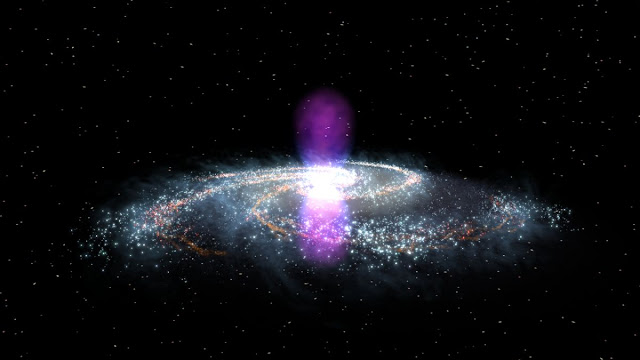A group of astronomers has discovered a ‘barrier’ in the heart of the Milky Way galaxy. It is currently unclear how is works or why it even exists.

An artist’s impression of the Milky Way’s center, using data from the Fermi Gamma-Ray Space Telescope. (Image credit: NASA Goddard)
Recent research published in Nature Communications describes the finding of a massive “barrier” at the heart of our Milky Way galaxy.
The study’s researchers from the Chinese Academy of Sciences in Nanjing examined a map of gamma-rays in our galaxy. According to Space.com, gamma-rays are the most energetic kind of light in the cosmos and may be produced when high-speed particles known as cosmic rays hit with the matter.
The map revealed to researchers that something in the centre of the Milky Way is boosting the speed of particles, with some approaching the speed of light.
Furthermore, the map revealed a substantial amount of cosmic and gamma rays near outside the galaxy’s core. Furthermore, the researchers described how, while the galactic core of the Milky Way emits high-energy radiation into the surrounding space, something prevents vast volumes of cosmic rays from entering.

The physicists characterize it as a “barriera” that seems to wrap around the galaxy’s core. This “barrier” keeps the intensity of cosmic rays inside the region lower than the baseline amount seen throughout the remaining portion of the Milky Way galaxy.
Essentially, the “barrier” permits cosmic rays to escape the galactic core but prevents them from returning. No one knows how or why the “barrier” exists at the moment. More research is required to crack this mystery.